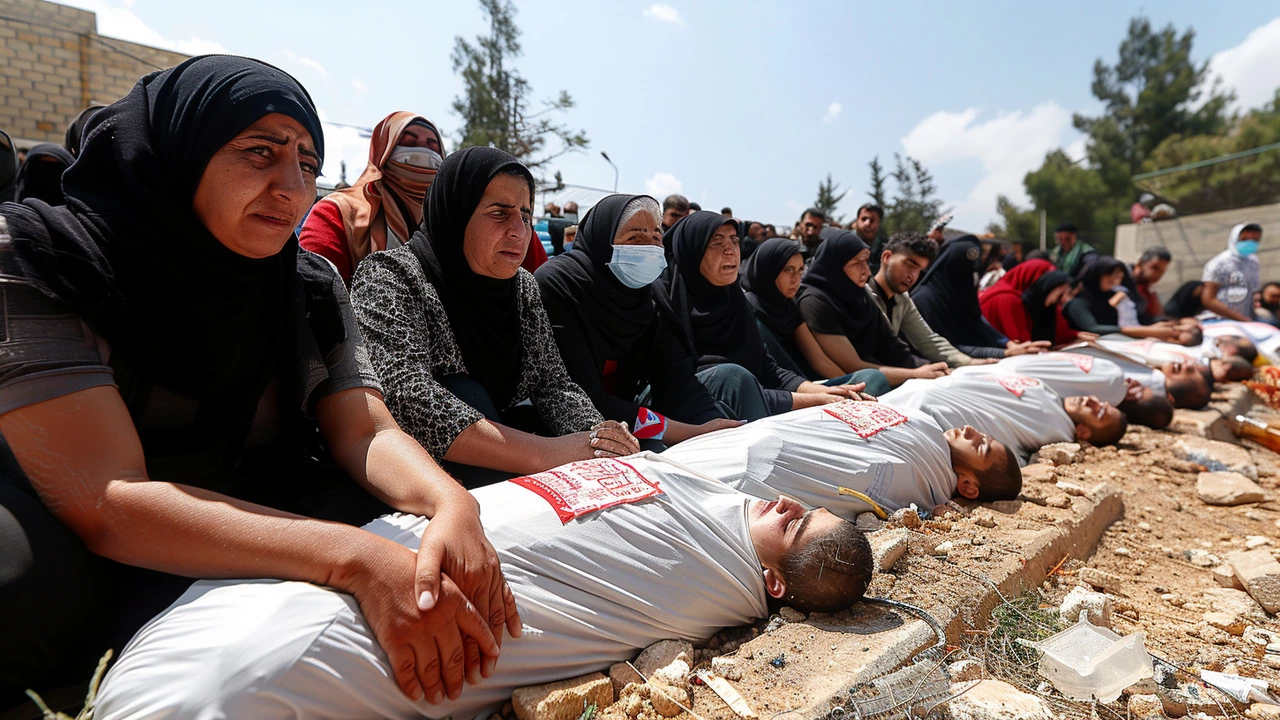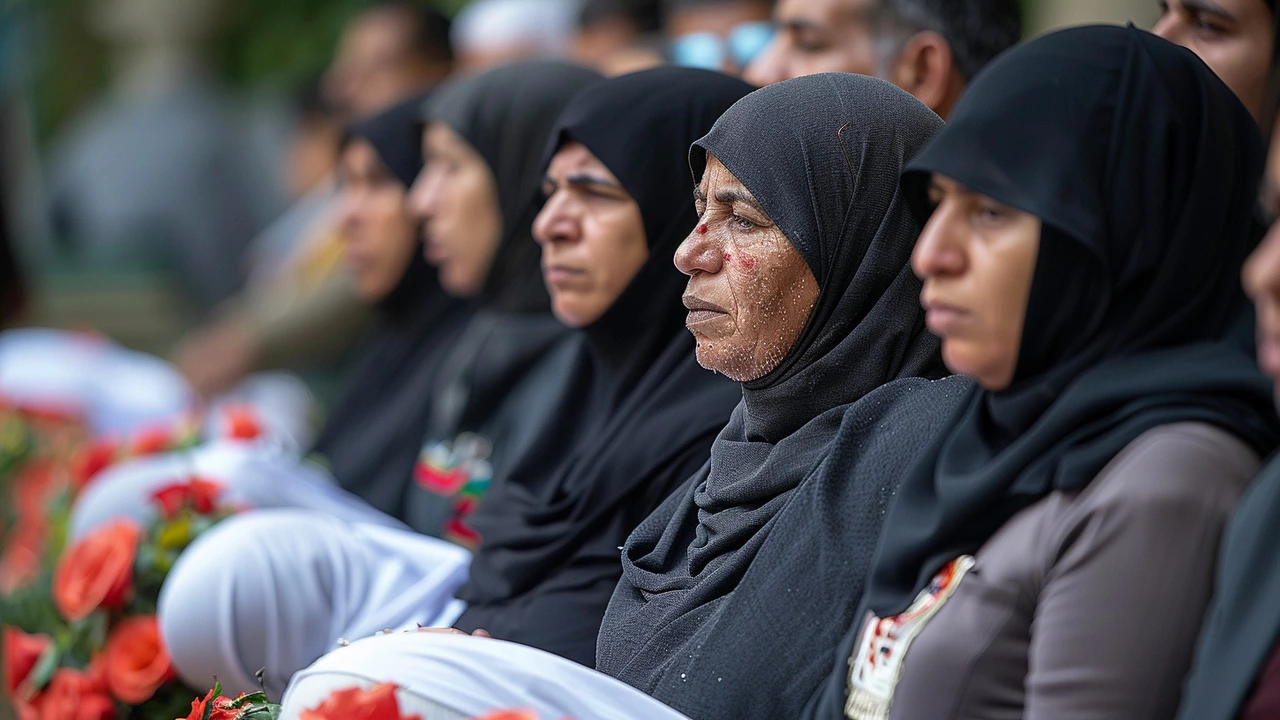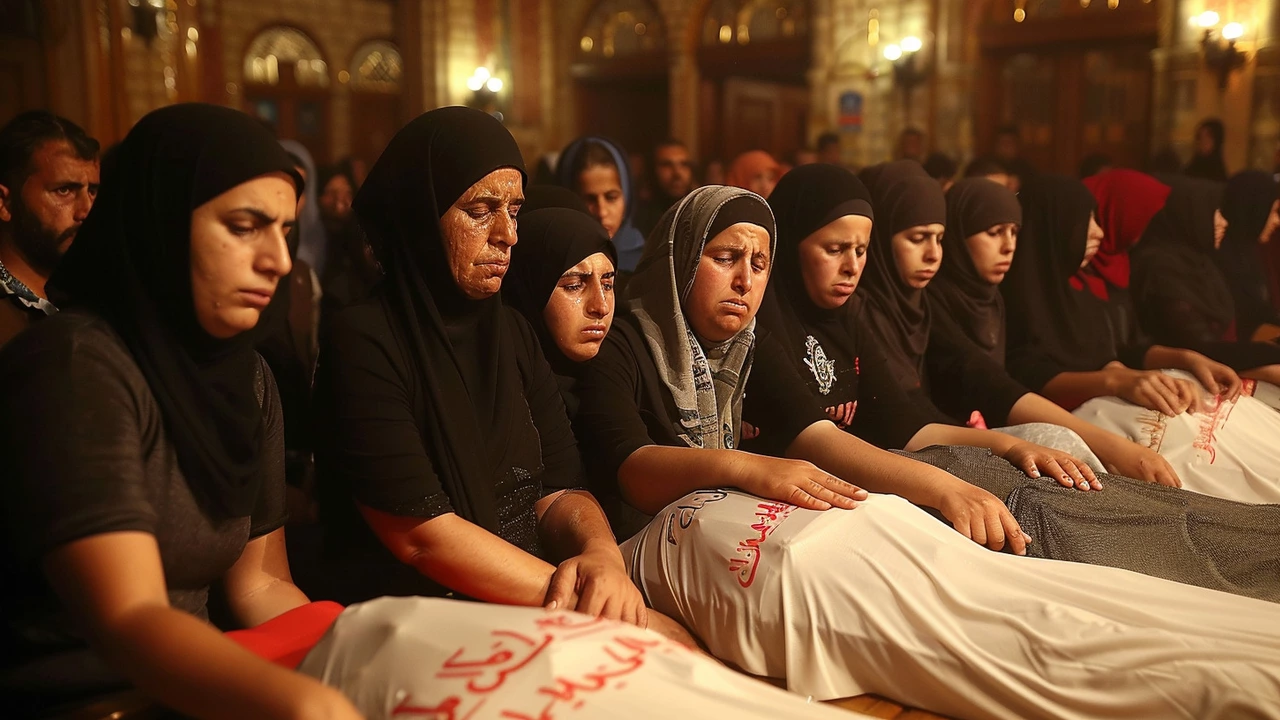Israel's Ongoing Bombardment of Rafah Raises Global Calls for Ceasefire After Tragic Attack on Displaced Persons Camp
 May, 29 2024
May, 29 2024
Israel's Escalating Bombardment in Rafah
In recent days, Israel has intensified its artillery attacks across Rafah, a city in the southern Gaza Strip, leading to an increasing number of fatalities and injuries. This escalation comes on the heels of a tragic incident where a tent camp for displaced Palestinians, designated as a safe zone, was bombed. The bombing resulted in the deaths of 45 people, the majority of whom were women and children, igniting international outrage and calls for an immediate ceasefire.
The Israeli military's relentless assault has targeted multiple neighborhoods within Rafah, including Tal as-Sultan, Saudi, Tal Za'roub, and al-Hashashin. The humanitarian impact of these attacks has been devastating, with countless families losing loved ones and innumerable individuals suffering severe injuries. The civilian populace, already suffering from years of conflict and displacement, now faces an even bleaker reality.
Tragic Losses and Humanitarian Crisis
The bombing of the tent camp, purportedly a safe haven for the displaced, underscores the grave human cost of the ongoing conflict. The loss of 45 lives, many of whom were defenseless women and children, has not only steeped the local community in mourning but also caught the world's attention. Images and reports from the ground show a harrowing scene, with tents reduced to ashes and surviving individuals frantically searching for loved ones amidst the debris.
Local medical facilities, already under tremendous pressure due to ongoing hostilities, have struggled to cope with the influx of casualties. Health care workers, operating under dire circumstances, have reported shortages of critical supplies and medicines. The destruction of infrastructure, including roads, has further compounded efforts to provide timely medical assistance.

International Response and Calls for Ceasefire
The international community's reaction to these developments has been swift and unequivocal. Leaders from various countries and humanitarian organizations have condemned the attacks and called for an immediate cessation of hostilities. There is a growing consensus that the continued violence is unsustainable and that urgent measures must be taken to protect civilian lives.
The United Nations, human rights groups, and numerous countries have issued statements urging both Israel and Palestinian groups to agree to a ceasefire. They have emphasized the need for dialogue and peaceful resolution, stressing that the humanitarian situation in Gaza is deteriorating at an alarming rate.
Context of the Conflict
The conflict in Gaza is deeply rooted in a complex history of territorial disputes, political tensions, and repeated cycles of violence. The residents of Rafah, like many in Gaza, have endured years of hardship due to blockades, economic instability, and recurrent military operations. This recent escalation has rekindled memories of past conflicts and has raised concerns about the prospect of a prolonged period of violence.
The Israeli government, for its part, maintains that its military actions are aimed at eliminating threats posed by militant groups operating within Gaza. Officials argue that the bombardment is a necessary measure to safeguard Israeli citizens from rocket attacks and other forms of aggression originating from Palestinian territories.
Humanitarian Efforts and Aid
While the focus remains on the immediate cessation of violence, efforts are underway to provide humanitarian aid to those affected. International aid organizations are mobilizing resources to deliver food, medical supplies, and other essential items to the displaced population. However, access to the affected areas remains a significant challenge due to the ongoing conflict and damage to infrastructure.
Local groups and volunteers have also been instrumental in providing support, often risking their own lives to help their communities. Their efforts, though vital, are hampered by the limited resources and the scale of the crisis.
The situation in Rafah and the broader Gaza Strip is a stark reminder of the urgent need for a lasting and comprehensive solution to the Israeli-Palestinian conflict. The civilian population continues to bear the brunt of the violence, and without meaningful diplomatic intervention, the cycle of suffering is likely to persist.

Global Advocacy and Future Prospects
Looking ahead, the international community faces the critical task of not only facilitating an immediate ceasefire but also addressing the underlying issues that fuel the conflict. Advocacy for human rights, equitable solutions, and sustained peace talks will be essential in shaping a future where such tragedies can be prevented.
Peace efforts must prioritize the well-being of civilians and ensure that their voices are heard in discussions about their future. The focus should be on creating conditions that foster coexistence and mutual respect, moving beyond the cycle of retaliation and retribution.
The recent events in Rafah serve as a poignant call to action for global leaders and citizens alike. The path to peace may be fraught with challenges, but it is a journey that the world must undertake with urgency and resolve.